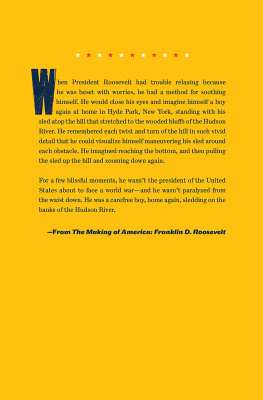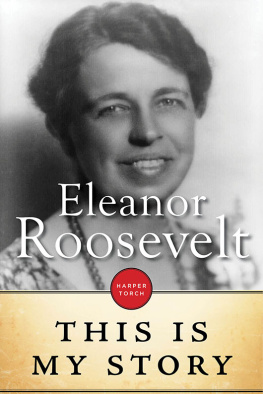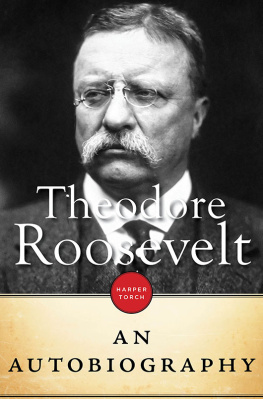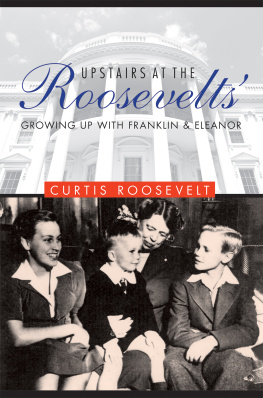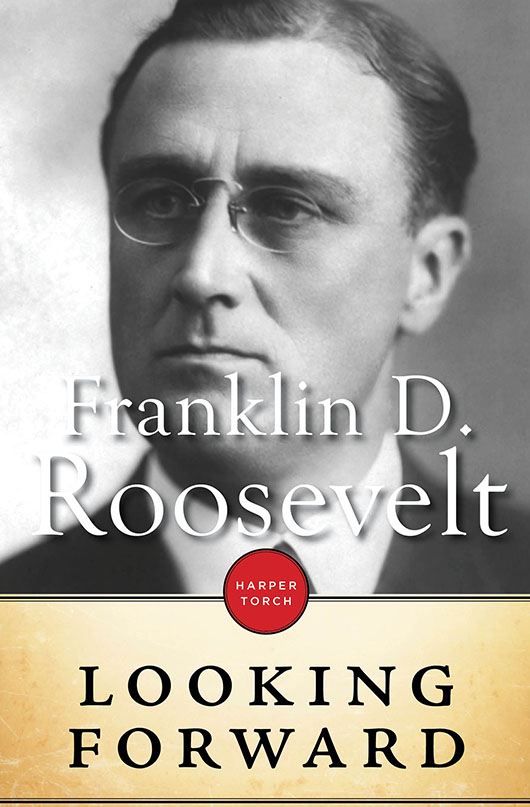Franklin D. Roosevelt
This is essentially a compilation from many articles written and speeches made prior to March 1, 1933. I have added parts which bind the material together as a whole.
In the comments to follow I speak not of politics, but of government; not of parties, but of universal principles. They are not political except in that large sense in which a great American once expressed a definition of politicsthat nothing in all human life is foreign to the science of politics.
The quality of national politics, viewed as a science which is capable of affecting for the better the lives of the average man and woman in America, is the concern of national leadershipparticularly in such years as these, when the hand of discouragement has fallen upon us, when it seems that things are in a rut, fixed, settled, that the world has grown old and tired and very much out of joint. That is the mood of depression, of dire and weary depression which, if the quality of our political leadership is right, should vanish so utterly that it will be difficult to reconstruct the mood.
Everything tells us that such a philosophy of futility is wrong. America is new. It is in the process of change and development. It has the great potentialities of youth. But youth can batter itself to death against the stone wall of political and governmental ineptitude.
That our government has been created by ourselves, that its policies and therefore many of its detailed acts have been ordered by us, is obvious. It is just as true that our interest in government is a self-interest, though it cannot be called selfish, for when we secure an act of government which is helpful to ourselves it should be helpful to all men. Until we look about us we are likely to forget how hard people have worked for the privilege of government.
Good government should maintain the balance where every individual may have a place if he will take it, where every individual may find safety if he wishes it, where every individual may attain such power as his ability permits, consistent with his assuming the accompanying responsibility.
The achievement of good government is therefore a long, slow task. Nothing is more striking than the simple innocence of the men who insist, whenever an objective is present, on the prompt production of a patent scheme guaranteed to produce a result.
Human endeavour is not so simple as that. Government includes the art of formulating policies and using the political technique to attain so much of them as will receive general support; persuading, leading, sacrificing, teaching always, because perhaps the greatest duty of statesmanship is to educate.
We must build toward the time when a major depression cannot occur again; and if this means sacrificing the easy profits of inflationist booms, then let them goand good riddance.
Our recent experiences with speculation have distorted the perspective of many minds. A whole generation had gone mad over that word co-operation; there had been many conferences of this and of that industry, trade papers, codes of ethics, red-fire and pep talksall aimed to build up sales and more production. What had been lacking was the kind of planning which would prevent and not stimulate overproduction. It is natural that in the minds of many, first one plan of action and then another seemed of paramount importance. It is natural that the scrapping of industries, and even institutions which seemed the bulwarks of our strength, bewildered even those who had heretofore been able to find in past history practical suggestions for present action. It would be natural, when such experience seemed to contribute nothing, that the great social phenomenon of this depression would produce disorderly manifestations. Yet wild radicalism has made few converts, and the greatest tribute I can pay my countrymen is that in these days of crushing want, there persists an orderly and hopeful spirit on the part of the millions of our people who have suffered so much. To fail to offer them a new chance is not only to betray their hopes but to misunderstand their patience.
To meet by reaction that danger of radicalism is to invite disaster. It is a challenge, a provocation. The way to meet that danger is to offer a workable programme of reconstruction. This, and this only, is a proper protection against blind reaction on the one hand and improvised hit-or-miss, irresponsible opportunism on the other.
My party is neither new nor untried. My national leadership of it is new to the extent that within the party it legally dates, if that term may be used, from the moment its delegates, in convention assembled, nominated me for the presidency. But a new man in that leadership should not mean an untried concept of policies; they must be firmly rooted in the governmental experience of the past.
Federalism, as Woodrow Wilson so wisely put it, was a group possessed of unity and informed by a conscious solidarity of interest. It was Jeffersons purpose to teach the country that the solidarity of federalism was only a partial one, that it represented only a minority of the people and that to build a great nation the interests of all groups in every part must be considered. He has been called a politician because he devoted years to the building of a political party. But his labour was in itself a definite and practical contribution to the unification of all parts of the country in support of common principles. When people carelessly or snobbishly deride political parties, they overlook the fact that the party system of government is one of the greatest methods of unification and of teaching people to think in common terms of our civilization.
We have in our own history three men who chiefly stand out for the universality of their interest and of their knowledgeBenjamin Franklin, Thomas Jefferson and Theodore Roosevelt. All three knew at first hand every cross-current of national and of international life. All three were possessed of a profound culture in the best sense of the word, and yet all three understood the yearnings and the lack of opportunitythe hopes and fears of millions of their fellow-beings. All true culture finally comes down to an appreciation of just that.
And of the three, I think that Jefferson was in many ways the deepest studentthe one with the most inquiring and diversified intellect and, above all, the one who at all times looked the farthest into the future, examining the ultimate effects on humanity of the actions of the present.
Jeffersons methods were usually illustrative of government based upon a universality of interest. I can picture the weeks on horseback when he was travelling into the different states of the Union, slowly and laboriously accumulating an understanding of the people of his country. He was not only drinking in the needs of the people in every walk of life, but he was also giving to them an understanding of the essential principles of self-government.
Jefferson was so big in mind and spirit that he knew the average man would understand when he said, I shall often go wrong through defective judgment. And when right, I shall be thought wrong by those whose positions will not command a view of the whole ground. I ask your support against the errors of others who may condemn what they would not, if seen in all the parts.
I shall not speak of an economic life completely planned and regulated. That is as impossible as it is undesirable. I shall speak of the necessity, wherever it is imperative that government interfere to adjust parts of the economic structure of the nation, that there be a real community of interestnot only among the sections of this great country, but among the economic units and the various groups in these units; that there be a common participation in the work of remedial figures, planned on the basis of a shared common life, the low as well as the high. On much of our present plans there is too much disposition to mistake the part for the whole, the head for the body, the captain for the company, the general for the army. I plead not for a class control, but for a true concert of interests.


